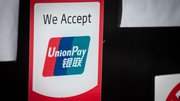Article
Link head of strategy: 'Contactless cards driving move away from cash in UK'
Graham Mott, head of strategy at Link, which oversees the U.K.'s network of ATMs, believes that contactless cards are behind the globe's shrinking reliance on cash.

October 24, 2019 by Amy Castor — Editor, Networld Media Group
The U.K. is facing a crisis of sorts. The number of ATMs in the country is dropping as merchants and consumers are relying less on cash for payments.
That could be viewed as a good thing, but not if you live in a rural area without a nearby ATM or you are someone who is dependent on cash for day-to-day living.
The country's move away from cash was not based on any particular campaign, according to the head of strategy at Link, which oversees the country's network of cash machines. Rather, it was due to the rapid and very natural adoption of contactless cards.
"Consumers — and more importantly retailers — are seeing the speed and convenience of contactless," Graham Mott told the crowd at an ATM Industry Association conference in Rome last week. "In a busy environment like a bar or cafe where time is of the essence, contactless offers great opportunities."
Mott predicts the same thing will happen in other countries that are cash dependent now.
"My feeling is the countries that have high cash usage — Italy, Ireland and others — will move rapidly into a less cash environment as contactless cards become more established," he said, adding that he believes the transition could happen "quicker than you might expect."
Because contactless cards allow consumers to tap and keep going, they offer greater speed and convenience. Merchants don’t have to dole out change, and they can process more customers — a huge advantage in a busy bar or fast food restaurant.
As a result, people in the U.K. are making fewer trips to ATMs.
For years Brits were visiting ATMs 2-3 times per week, Mott said. Now less than 50% are using ATMs once a week or more.
As a result, the country. has seen a dramatic drop in ATMs — from over 70,000 machines in 2015 to 62,000 in 2018. In the last 18 months, the number of ATMs has seen its biggest decline, particularly free-to-use, non-branch ATMs.
"More importantly, we have far fewer free ATMs than we had before," he said.
Link is committed to protecting free access to cash for as long as consumers want it.
“If ATMs are disappearing, what we don’t want is consumers who live in remote or private areas to not have access to cash."
One of the first things Link did was commission the independent Access to Cash Review to get a handle on what was happening. The full report came out in March. Mott called it an "important milestone to what was happening to cash in the U.K."
Other programs Link is behind include subsidizing ATMs in the most deprived areas and protecting free-to-use ATMs.
Link is now accepting applications for free-to-use cash machines in locations where there is no ATM nearby.
"We will fund an ATM directly," Mott said, adding that the campaign thus far has been a great success.
"So far, we have had over 50 (potential) sites come through."
About Amy Castor
Amy Castor has more than 20 years of experience in journalism and mass communications. In the last several years, she has gotten particularly interested cryptocurrencies, blockchain technologies and other evolving forms of payment. Her work has appeared in consumer and trade publications throughout the U.S., including CoinDesk, Forbes, and Bitcoin Magazine. She is now the editor of ATMmarketplace.com and WorldofMoney.com
Included In This Story
ATM Industry Association (ATMIA)
The ATM Industry Association, founded in 1997, is a global non-profit trade association with over 10,500 members in 65 countries. The membership base covers the full range of this worldwide industry comprising over 2.2 million installed ATMs.
 ChatGPT
ChatGPT Grok
Grok Perplexity
Perplexity Claude
Claude













